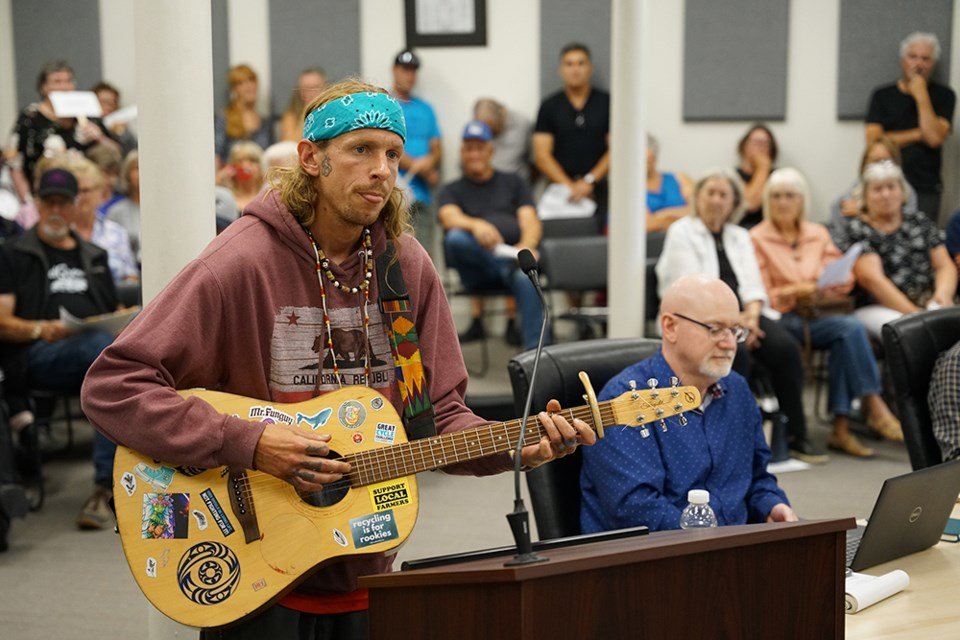Representatives of Strength of Unified Lives (SOUL) Society introduced their organization to City of Powell River councillors, advocating for comprehensive recovery solutions for individuals living with addiction.
At the August 19 committee of the whole meeting, following a musical presentation on recovery by performer Flash Being, Tony Stich spoke on behalf of SOUL, describing it as a coalition of lived experience, truth tellers, and community advocates.
“Our mission is simple but urgent,” said Stich. “It’s to expose harm, end silence, and work toward recovery-centred solutions. We care deeply about Powell River and its future and believe there is a better path forward.”
Stich said that over the past five years, Powell River has been affected by BC’s harm-reduction policies. “We’ve seen rising public drug use in parks, schools, and other public spaces, creating concerns about safety and community livability. People in crisis are often left without real treatment or recovery options.”
He emphasized that the organization’s concerns are with the system, not individuals struggling with addiction. “Addiction is a disease, not a moral failing. Our concern is with a system that enables ongoing use without investing equally in prevention,” he said.
Stich highlighted reports of increased public disorder, safety issues, and overdose deaths. He said prominent provincial voices have criticized harm-reduction strategies as inadequate because they prioritize managing symptoms over prevention.
“SOUL is asking the City of Powell River to publicly support a balanced, four-pillar approach including prevention, treatment, enforcement, and harm reduction, rather than focusing solely on harm reduction,” Stich said. He urged the council to advocate for increased provincial funding for detox, recovery beds, and mental health support, and to partner with SOUL to develop a community strategy prioritizing public safety and recovery.
“Powell River is a strong, compassionate community,” said Stich. “We believe we can lead by example. Imagine a Powell River where people in crisis can access treatment the same day and where public spaces are safe for children and families. This vision is about keeping people alive and helping them rebuild their lives.”
SOUL organizers also include Dave Marthaller, Brianne Benitz, and Emily Holland. In an email, Benitz explained that SOUL was created by community members with lived experience who have seen firsthand the gaps and failures of current harm-reduction and supportive housing programs.
“We came together out of a shared belief that people deserve better – real opportunities for recovery, dignity, accountability, and community safety,” Benitz said. She added that SOUL’s purpose is to advocate for truth and accountability, promote recovery pathways, strengthen community safety, and empower lived experience voices.
Benitz stated that current systems often enable harm instead of fostering change, leaving residents and the wider community vulnerable. “Too many people remain trapped in cycles of addiction, homelessness, and hopelessness, with some losing their lives unnecessarily. Powell River needs solutions that work for everyone, not just temporary fixes.”
She concluded that SOUL envisions a community where individuals have the tools and opportunities to recover, thrive, and contribute meaningfully, with safety, accountability, and compassion working hand in hand. The mission is to unify voices for truth, recovery, and dignity by combining lived experience, community input, and actionable solutions.

